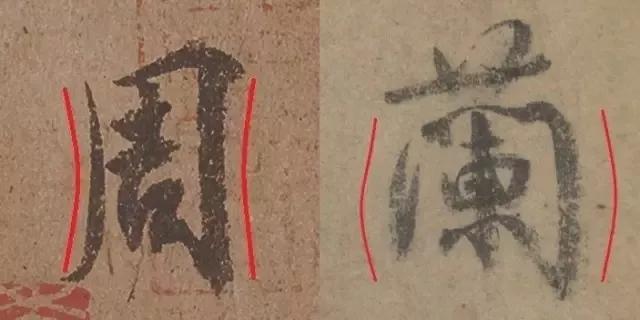八年级上册冀教版英语知识点(冀教版八年级英语上Unit6)
Lesson 32第三十二课
Trains Go Faster!火车更快!
1In the 1700s, many scientists worked on steam engines.
在18世纪,许多科学家致力于蒸汽机的研究。
1.1in the 1700s在 18 世纪
“in the 整十年份 -s 或’'s”
①当结构中“年代”为100 的整数倍时,意为“在……世纪”。
②“in the 整十年份 -s 或’'s”意为“在……世纪……年代”。
in the 1760s/1760's 在 18 世纪 60 年代
1.2worke on从事,致力于。
1.3steam engines蒸汽机。
2In the 1760s, a scientist in England found a way to put steam engines and wheels together.在18世纪60年代,一位英国的科学家找到了一种将蒸汽机与车轮连接在一起的方法。
2.1find a way to do sth.找到一个方法与干某事。
2.2put sth. and sth. together把某物和某物结合在起/组装在一起。
3Soon people had a new type of transportation: the steam train.
很快,人们就有了一种新型的交通工具:蒸汽火车。

4In 1804, the first train engine was born in England.在1804年,第一个火车引擎在英国诞生了。
4.1train engine火车机车。
4.2be born出生,产生,形成。当表示出地地点或日期时,后面可以接介词in,at或on构成的介词短语。
be born in 地名
She was born in Beijing.
be born on 年月日。
I was born on July26,2001
5It travelled only about fifteen kilometres in two hours.它在两个小时里只能行进大约15公里。
5.1in two hours表示的意思是“某段时间以内”。但在将来时的句子中,通常会说成两小时后,因为将来的事情还没有发生嘛。在过去或过末完成时里面,通常就理解为两小时之内。
6 In 1825, the first passenger railway opened.
在1825年, 首个客运铁路开通了。6.1passenger[ˈpæsɪndʒə(r)]名词,乘客,旅客。
passenger railway 客运铁路。

7The Rocket was the most famous early engine.火箭是最出名的早期引擎。
7.1most的用法
①most用作副词时是many和much的最高级,可与部分两个或两个以上音节的形容词或副词构成最高级。与形容词连用构成最高级时,前面通常要加定冠词,尤其是在有明确的比较范围时。
most在构成最高级时,通常指两者以上的“最”,但有时也可以表示两者之间的“最”。
She helped me (the) most when my parents died.我父母死时她给我的帮助最多。
We heard a most interesting talk about Japan.我们听了一个关于日本的非常有趣的谈话。
②most用作名词
i.most用作名词时常与of连用,放在其他名词前作限定用法(该名词前应有my, our, the等限定词)。
ii.“most of 名词”用作主语时,其谓语动词的数须根据该名词的数来决定。
Most of her books were stolen.
她的大部分书被偷走了。
Most like it.大多数人都喜欢它。
③作代词,意为“最大量,大多数,大部分,大多数人。”
He spends most of his time playing computer games.他把大多数时间用在玩电脑游戏上。

8During the 1830s, countries all over the world started to build railways.在19世纪30年代, 世界各国开始修建铁路。
8.1all over the world 全世界,世界各地。
8.2start to do sth.开始准备做某事
start doing sth.开始做某事;开始干某事
start to do sth准备开始做某事。是将要做,但是还没有做的状态。而start doing sth某件事已经开始做了,表示已经开始做的状态。
9Fifty years later many countries had railways.
五十年之后,许多国家都有了铁路。
9.1later副词,后来;以后;其后;随后。
10 People built many train stations to help passengers get on and off the trains easily.
人们修建了许多火车站,帮助旅客们轻松上下车。

10.1get on/off上/下(车、船等)
get into/out of上/下小汽车等。
10.2easily副词,容易地。
11Early trains were slow by today's standards.早期的火车以今天的标准来说是很慢的。
11.1by today's standards根据今天的标准。
by a common standard按照一个共同的标准。
12The Rocket had a top speed of only 45 kilometres per hour.
“火箭号”的最高速度只是每小时45公里。
12.1speed的用法
the speed of……的速度i
have a top speed of最高速度为
a top speed最高速度
at high/low speed以高速/低速。
at a speed of以……的速度。
speed up 加速 ; 加快速度 ; 使加速 ; 加快
speed limit 速度限制 ; 时速限制 ; 限速 ; 最高车速
12.2per hour每小时
13Today's high-speed trains can travel at about 300 kilometres per hour.今天的高速列车每小时可以达到300公里。
13.1high-speed trains高铁。
13.2 at about 300 kilometres per hour以每小时大约300公里。
14The fastest trains can go about 500 kilometres an hour.
最快的列车每小时可以行进500公里。
15Maybe trains will have no wheels in the future.
也许未来的火车没有车轮。
15.1n the future在将来。
16Maybe they will ride on air.
也许它们会在空中行驶。
16.1ride on air腾空行驶/在空中行驶。

17That would be amazing!
那真是太令人惊奇了!
17.1amazed与amazing的区别:
①amazed形容词,大为惊奇的。
amazing 形容词,令人大为惊奇的;(尤指)令人惊喜(或惊羡、惊叹)的。
②amazed用法:是由动词amaze的过去分词转化而来的形容词,其词义与动词amaze相当。即“令人大为惊奇的”,尤指令人惊喜的、令人惊羡的或令人惊叹去,主语是人其他生命体。
③amazing用法:在句中可用作定语,也可用作表语。用作表语时,其后还可接介词短语、动词不定式或that及疑问词引起的从句,主语为某事物。
,免责声明:本文仅代表文章作者的个人观点,与本站无关。其原创性、真实性以及文中陈述文字和内容未经本站证实,对本文以及其中全部或者部分内容文字的真实性、完整性和原创性本站不作任何保证或承诺,请读者仅作参考,并自行核实相关内容。文章投诉邮箱:anhduc.ph@yahoo.com






